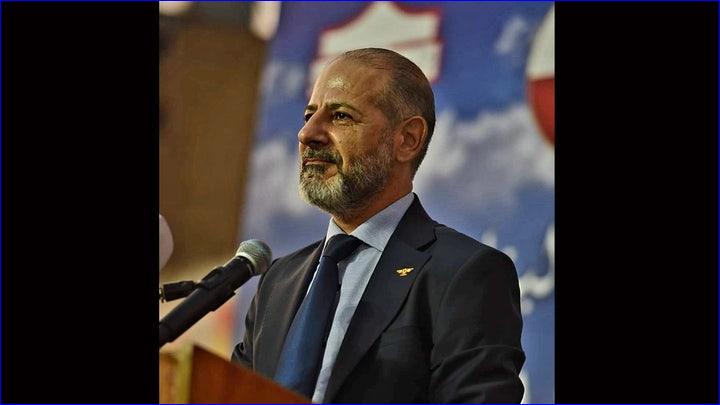


In an interview with Fox News Digital, Ibrahim Mrad, president of the Universal Syriac Union Party and secretary general of the Lebanese Christian Front, said now is the time for the U.S., the U.K. and Germany to send troops in coordination with the United Nations and, alongside the Lebanese army, finally dismantle the terrorist group propped up by Iran.
"If that [were] to be delayed, the Mullah could get, again, more power, and that will be, again, impossible [to dismantle Hezbollah]," Mrad said through a translator in reference to the leaders of the Islamic Republic, which is headed by Iran's supreme leader, Ayatollah Ali Khamenei.
Israeli Defense Minister Israel Katz claimed early last month that Hezbollah had been "defeated" in Lebanon after just over a month of targeted hits focused on destroying the terrorist group's strongholds in southern Lebanon and in the capital city of Beirut, chiefly in the Dahiyeh suburb.
A shaky 13-point cease-fire was then agreed to late last month between Israel and Hezbollah that largely ended the strikes, though intermittent attacks have since been levied by both sides.
But reports this month suggested that U.S. intelligence officials believe that Hezbollah, backed by Iran, has not made any move to dismantle its military operations in Lebanon -- a key pillar of the agreement -- and that it will likely look to rebuild its forces and stockpiles.
U.S. intelligence reportedly showed that Hezbollah was continuing to recruit to its ranks even as it was taking heavy hits from Israel through November. It was also reported to be attempting to rearm itself through domestic production as well as smuggling efforts through Syria, though it is unclear how these efforts have been impacted by the deteriorating situation in the neighboring nation over the last week.
The Christian Front, led by Mrad, said during a meeting at its headquarters in Beirut's Achrafieh neighborhood earlier this month that it does not believe the cease-fire between Israel and Hezbollah will hold. It is therefore urging the Lebanese members of Parliament to request the deployment of international forces amid "the anticipated failure of the cease-fire agreement."
Mrad explained to Fox News Digital that while, by his estimate, roughly 70% of the country does not back Hezbollah, the government and the army are not strong enough to completely dismantle the terrorist group or to prevent it from posing a future threat to Israel, a situation that risks a repeat of past failures.
Previous international agreements under U.N. Resolution 1559, signed in 2004, and Resolution 1701, signed in 2006, called for the disarmament and dissolution of all militia groups and for the deployment of U.N. and Lebanese forces to the south of the country to stop Hezbollah from gaining a hold in the areas bordering Israel. Both resolutions failed to be realized.
"We know now, in this situation, the Lebanese army couldn't implement Resolution 1559 to force Hezbollah to [drop] their arms," Mrad told Fox News Digital through a translator. "That's why our demand for help is from the United Nations. They could come in and implement those two resolutions ... [but] we want Americans and Germans and the British to be present in these forces."
Fox News Digital could not immediately reach the State Department for comment on whether the U.S. has been approached by Lebanon about a request to deploy U.S. troops.
Concerns in Beirut that the cease-fire will fail coincided with threats levied this week by Israel's defense minister that Jerusalem will no longer distinguish between Lebanon and Hezbollah should the terrorist group break the agreement.
When asked about the warning issued by Katz last week, the Lebanese Christian leader said this approach would be a "mistake" that could turn the tide against Jerusalem.
"If they do that, then the Lebanese people will be against Israel. As I said before, most of the people are against Hezbollah now, not against Israel," he said.
"If they target [civilians], that will be a mistake," he added, noting he did not believe Jerusalem will actually begin pursuing non-Hezbollah targets.

or register to post a comment.